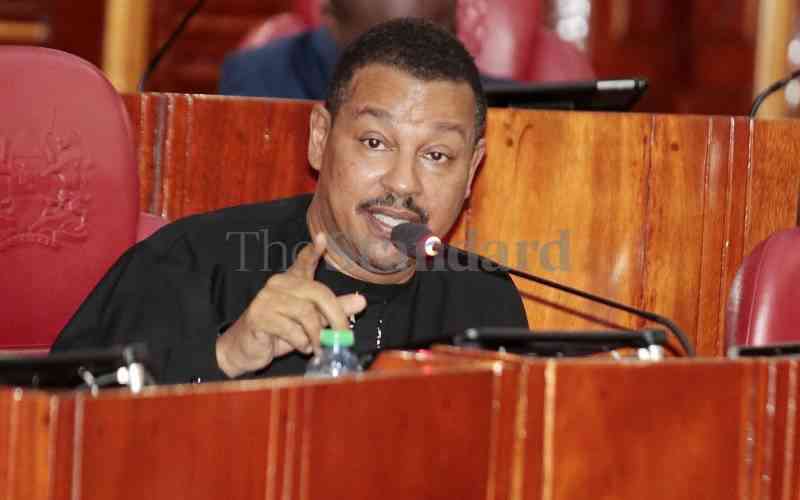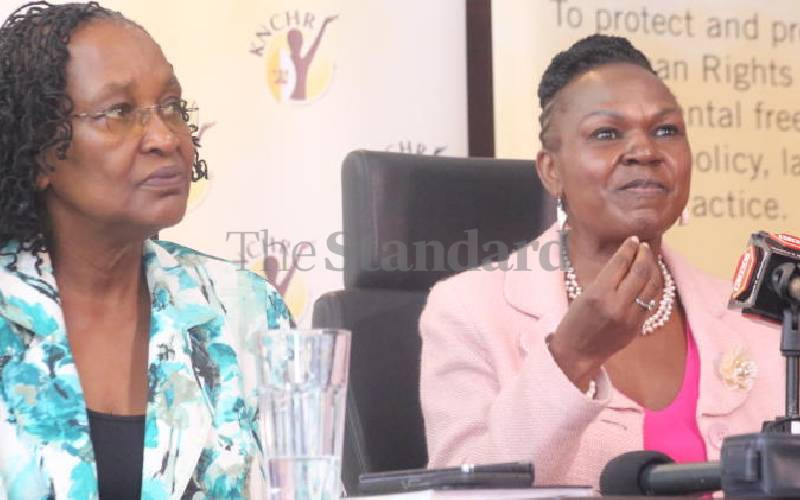By LUKE ANAMI
When a public watchdog named the Labour ministry among the worst performers in an audit of public complaints, most Kenyans were not surprised.
In a report for the period between January and March, the Public Complaints Standing Committee, or the Office of Ombudsman, named ministry of Lands, Local Government, Judiciary and Provincial Administration as some of the institutions indicted by the public for unsatisfactory performance.
The most common complaints focused on delay in service delivery, injustice, and unethical conduct, emphasising the important role that service industry plays.
"The majority of complaints my constituents bring to my attention concerns loss of jobs, and constant harassment by employers," Vice President, Kalonzo Musyoka, said during the National Labour Conference, which ended last Thursday.
"At one time I thought Labour Officers were the most corrupt, as complaints of their inability to rein in errant employers abound to date."
Musyoka, who opened the conference that was last held 21 years ago, and brought together Labour officers from across the country, captured the mood of many workers who work hard, but have little to show for their sweat.
Most Kenyans accuse Ministry of Labour officials, for failing to reign in employers who break the law.
They accuse them of being corrupt, inept and unresponsive to complaints of workers harassment, non-payment of wages, unfair job dismissals, poor working conditions and victimisation of workers who want to join a union, among other grievances.
But what most Kenyans are not aware of is how the labour law system weakens labour officers, leaving them powerless to summon or discipline errant employers or unions.
For instance, the officers no longer possess powers to summon both the employer and employee for arbitration.
"The biggest challenge for labour administration in the country is the system of "extra-judicial conciliation"," Beatrice Kituyi, PS for Labour said, when she addressed labour officers, donors and the tripartite partners at the recently concluded conference.
In an effort to speed up the settlement of individual labour disputes, and, therefore, allow workers, whose contracts have been terminated, to receive their wages and compensation quickly, the Kenyan labour system offers employees the chance to make a claim with the labour officers before the case goes to court.
The practice, known as extrajudicial conciliation, involves the conflicting parties being summoned to appear before a labour officer so as to seek an agreement or a negotiated solution.
The practice is intended to be not only judicious, but also swift and economical both for employees and employers, as well as to the labour court, since it reduces the number of cases brought before it.
Stay informed. Subscribe to our newsletter
However, the process is not institutionalised in the labour laws or regulations, thereby denying workers justice.
"As a result, the labour inspectorate has no powers to summon the employer to appear in order to find a solution to cases that might be assigned to them, or which ensure from the implementation of labour laws," PS Kituyi says.
Labour analyst’s say the emancipation of officers has contributed to the large backlog of labour complaints and the perception that labour inspector are unresponsive, and therefore corrupt.
"It is my view that only when complaints procedure is formalised with time frames can the labour department hope to arrive at a better application of labour legislation," Mrs Kituyi said.
It will also help redundant workers receive their salaries and compensation more rapidly after termination of their employment, and substantially reduce the number of cases brought before the courts.
"I am proposing to FKE and Cotu to consider formulising the extrajudicial role of a labour inspector."
Kituyi has also proposed the tripartite partners, Cotu and FKE, should provide a quick and efficient process, through which the opposing parties may meet to reconcile their points of view, and, if they fail to reach a rapid solution, to refer the matter to court.
Labour Minister, John Munyes, also lamented over the poor state of affairs at his ministry, saying his department is grossly understaffed.
There are 97 labour officers, against the required number of 256. There offices also lack necessary equipment to enable them effectively and efficiently perform their duties. Further, a poor labour administration system currently in place does not meet international labour standards.
"The ministry lacks capacity in terms of both personnel and resources to inspect all employers, "Jacqueline Mugo, FKE’s Chief Executive Officer said.
Mugo said unless the Government revamps all departments in the ministry, compliance would continue to pose challenges to employers.
Clearly, the Government has some in house keeping doing as far as the Labour officer’s mandate and roles are concerned.
"After listening to the issues facing a labour inspector, I can no longer view them as corrupt," Vice president Musyoka observed.
[email protected]
 The Standard Group Plc is a
multi-media organization with investments in media platforms spanning newspaper
print operations, television, radio broadcasting, digital and online services. The
Standard Group is recognized as a leading multi-media house in Kenya with a key
influence in matters of national and international interest.
The Standard Group Plc is a
multi-media organization with investments in media platforms spanning newspaper
print operations, television, radio broadcasting, digital and online services. The
Standard Group is recognized as a leading multi-media house in Kenya with a key
influence in matters of national and international interest.
 The Standard Group Plc is a
multi-media organization with investments in media platforms spanning newspaper
print operations, television, radio broadcasting, digital and online services. The
Standard Group is recognized as a leading multi-media house in Kenya with a key
influence in matters of national and international interest.
The Standard Group Plc is a
multi-media organization with investments in media platforms spanning newspaper
print operations, television, radio broadcasting, digital and online services. The
Standard Group is recognized as a leading multi-media house in Kenya with a key
influence in matters of national and international interest.








